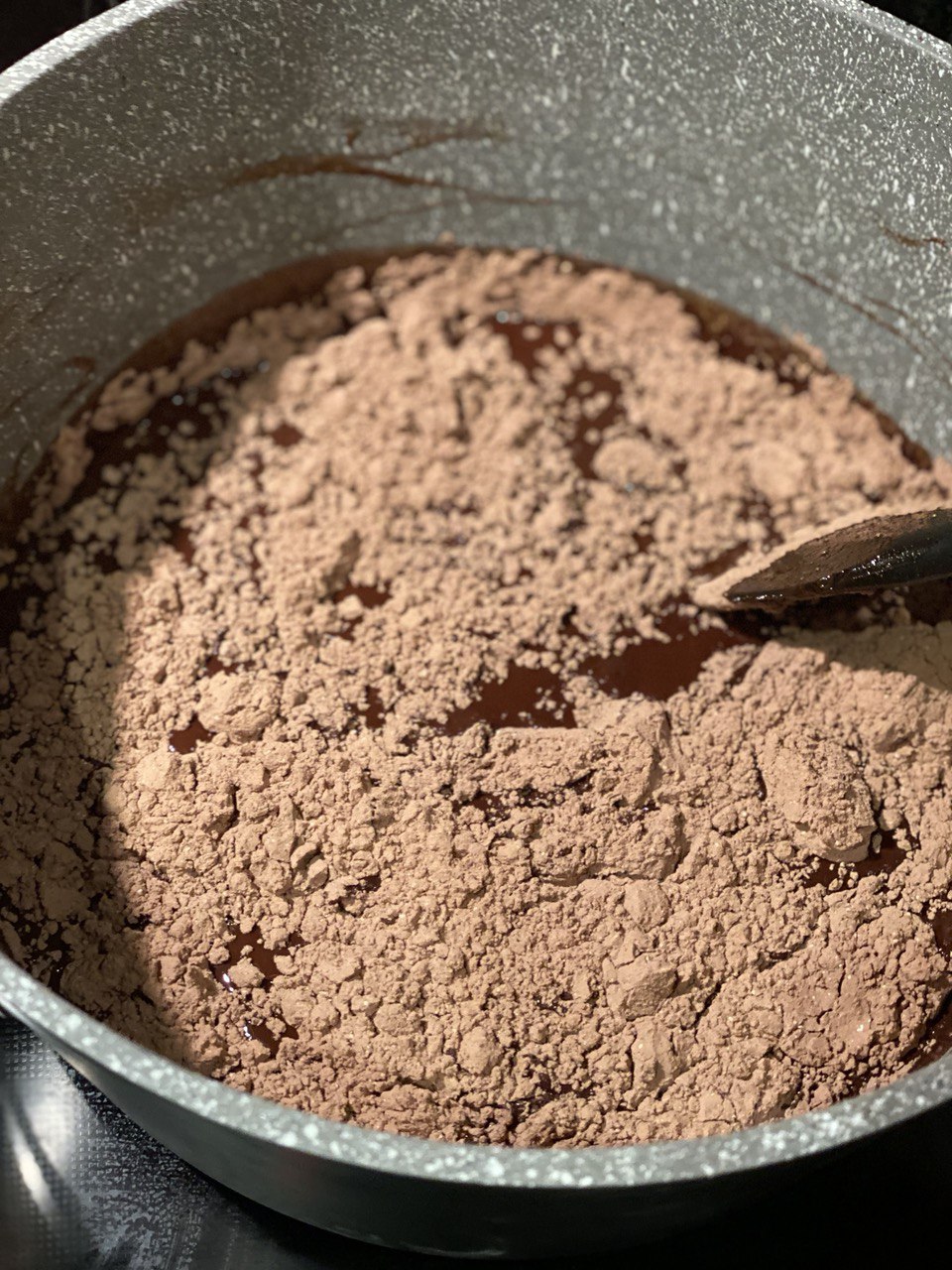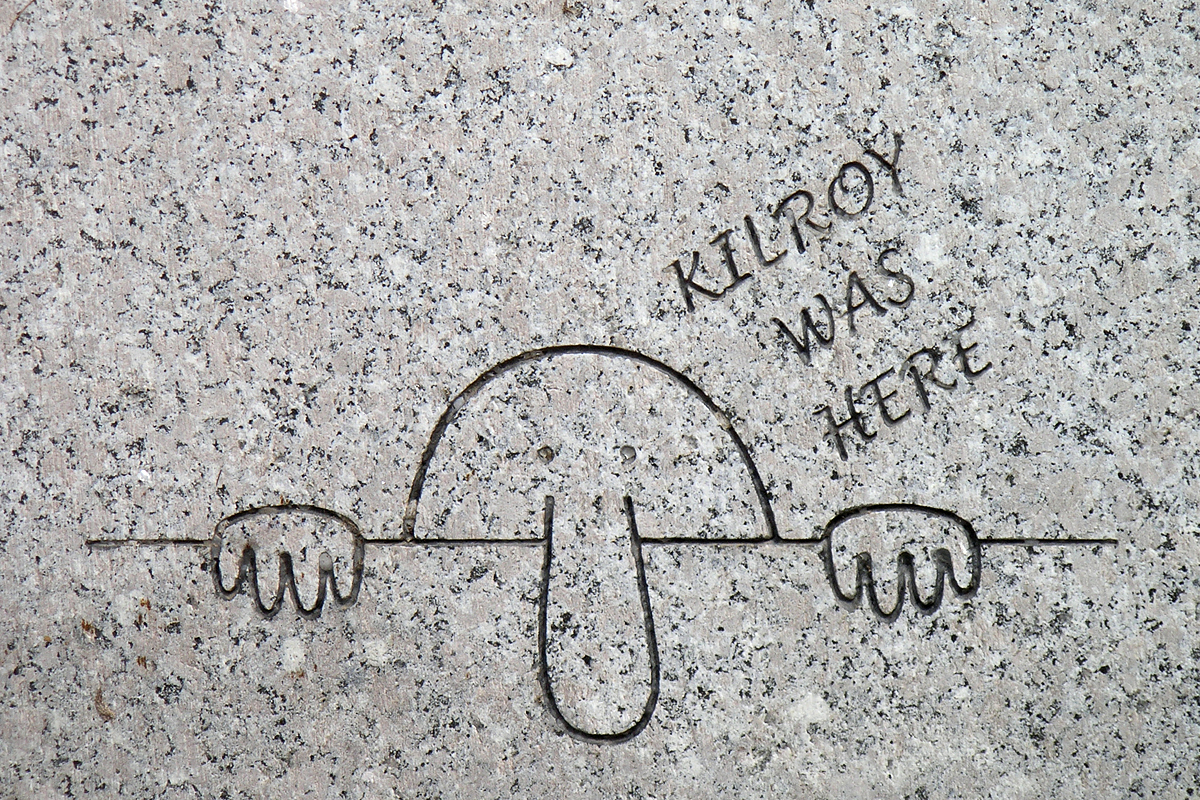Tuesday Triage #32
- TUESDAY TRIAGE #32 by Vadim Drobinin
- On chocolate
- Things I enjoyed reading
- 1. How to be more productive without forcing yourself by @deprocrastinate
- 2. The Context And The Logic by @khanlou
- 3. Age of distractions by @iamsanteri
- 4. She was trafficked into a giant brothel. Now she runs it by Corinne Redfern and Ali Ahsan
- 5. The Quest for French Fry Supremacy 2: Blanching Armageddon by @CookingIssues
- 6. Kill the alarm clock by Piotr Wozniak
- 7. The world's most misunderstood novel by Hephzibah Anderson
- 8. thought leaders and chicken sexers by @ztellman
- 9. Why did I leave Google or, why did I stay so long? by @noam
- 10. How my school gamed the stats by Srdjan Miletic
- Things I didn't know last Tuesday
- 1. Bread Dough Hotel
- 2. Plant blindness
- 3. Harrier in Tate Britain
- 4. kaneeltuinen
- 5. Unlawful killing
- 6. Aidan de Brune
- 7. Crêpes Suzette
- 8. Kilroy was here
- 9. Viktor Korchnoi
- 10. Zooko's triangle
- Book of the week
- Thank you and see you in a week!
TUESDAY TRIAGE #32
by Vadim Drobinin ¶
Your weekly crème de la crème of the Internet is here!
23.02.2021 (read in browser)
On chocolate ¶
I never was too fussy about sweets.
I love pretty much all of them, from Swedish salty liquorice candies to Victoria sandwich cakes, albeit some are suitable only for a specific occasion.
And yet, the chocolate was always a mistery to me: I never enjoyed dark chocolate, and mostly opted-in for something on the sweeter artificial side, until a few years ago we've started to sample a local chocolate subscription, which would deliver four bars a month and carefully walk us through proper tasting techniques.
Fifteen boxes later I could easily keep up with a conversation about conching origins, cocoa butter benefits, and history of sweets.
Fast-forward a year or two and here I am, making my own "bean-to-bar" chocolate from scratch.

I didn't bother with milling sugar into fine powder though, as these days we can buy it in shops as powdered sugar already. Sourcing single origin cacao beans was harder than buying single origin cocoa powder too, but from there it was pretty much straightforward: lots of sifting, and heating.

And then tempering in sous vide:

And then moulding:

The end result was... OK. I am not completely satisfied yet, as despite the bars tasting well and shining bright, which means that tempering was rather successful, it still lacks the proper snap and has some traces of sugar bloom and slightly grainy interior, so there is definitely room for improvement.

Not sure if I should try to temper it again, or just start from scratch though.
Things I enjoyed reading ¶
1. How to be more productive without forcing yourself by @deprocrastinate ¶
I come across this advice not often enough, and folks rarely talk about it on their own.
All those expectations can put more pressure on you than you can bear. More pressure often equals more procrastination.
Instead, you can escape those expectations by starting deliberately badly.
Write a chapter of a book by hand, without editing anything - you know that's not going to get published.
Trying to stay imperfect is very hard, and yet it's probably the most efficient way to make something.
2. The Context And The Logic by @khanlou ¶
I can relate to pretty much every single line in this post. Being driven by users' happiness it's quite simple to see how writing logic directly affects their lives, but more often than not it is not about the logic either.
But without the context, you still can’t do the job, and sadly there’s a lot more context than logic. I’m primarily a context programmer. I wish I weren’t — I enjoy writing the logic a lot more — but it is the reality. I should embrace that and treat the context as my job, rather than as an impediment to “my real job”.
One way to see if that's the case for you is to browse through the search history and see how much there is related to context not logic.
3. Age of distractions by @iamsanteri ¶
There are quite a few books out there about building habit-forming products, and yet there is not that much about breaking such habits.
When shortest breaks require distraction and only the rarest moments, such as taking a shower, offer a refuge from our electronic devices, how are we supposed to work towards our long-term goals? The type of goals that can only be achieved when managing to work in a state of sustained attention? Rarely do great things in life come in a form of neatly packaged gratification to which we are getting more and more accustomed to.
This essay is an exception of a kind, even though I am not yet brave enough to delete Instagram from my phone even for the sake of being way more productive.
4. She was trafficked into a giant brothel. Now she runs it by Corinne Redfern and Ali Ahsan ¶
An appalling story about sex industry in Bangladesh with slightly better epilogue than I though it would have.
The founders of Nari Mukti Sangha set up an office just beyond the brothel walls. They paid for their makeshift administration with donations, before starting up a microcredit programme and using the interest to cover the office rent. The stairs up to their headquarters were narrow and dusty but they painted the bannisters in yellow and pink and bought a low rattan sofa and a large wooden desk.
5. The Quest for French Fry Supremacy 2: Blanching Armageddon by @CookingIssues ¶
If I were to pick a single person whose influence on my cooking endeavours was the strongest, it'd be Dave Arnold.
At any given moment in time I think that I've read everything he has wrote so far, and yet I constantly prove myself wrong, like with this series on making fries better:
But now that I was more focused on internal texture, I wasn’t sure how the tests would pan out. We blanched a bunch of fries using several techniques: SP-L soak, PME soak, boiling blanch, blanch from cold, etc. We dried half of each batch in the convection oven with the door ajar, and fried the other half without drying.
In general, dried fries were crunchier than non-dried fries, but they tended to be hollower, and they tended to taste hard and dry when cold. The fries that had had not been dried, although not as crunchy as their dried brethren, always had a better internal texture and potato flavor, and remained pleasant even when cold –sometimes they even seemed to get better. For instance, in blanched-from-cold French fries (with some PME activation), tasters preferred the dried fries straight out of the fryer, but after 10 minutes, the un-dried fries were surprisingly pleasant. Not super crunchy –but not soggy.
Who'd think that soaking potatoes in Pectinex could solve so many problems?
6. Kill the alarm clock by Piotr Wozniak ¶
Pretty much the first time I come across such a comparison, although it makes sense. I can easily point out the tough days by looking at my sleep map.
You can compare the use of alarm clocks to smoking or eating hot dogs. The harm is not great enough to be instantly noticeable. It took the public many years to largely accept that "smoking is bad" or "fast food is bad". It is hard to quantify the degree of damage. However, as we move to knowledge society where our intellectual performance becomes increasingly important, the effects of sleep deprivation will come under closer scrutiny and alarm clocks are bound to gradually fall out of favor. Unlike hot dogs, they are already universally hated by their users.
Coincidence? I think not.
7. The world's most misunderstood novel by Hephzibah Anderson ¶
The Great Gatsby was one of the first books I tried to read in English (and have miserably failed for that matter) but it never struck me as something bright and entertaining.
Cain recalls instead talk of symbolism – the legendary green light, for example, and Gatsby's fabled automobile. It's a reminder that, in a way, the education system is as much to blame as pop culture for our limited readings of this seminal text. It may be a Great American Novel but, at fewer than 200 pages, its sublimely economical storytelling makes its study points very easy to access. Ironically, given that this is a novel of illusion and delusion, in which surfaces are crucial, we all too often overlook the texture of its prose.
Seems like I wasn't the only one.
8. thought leaders and chicken sexers by @ztellman ¶
An odd title and random pearls of wisdom? Must be an essay on Paul Graham.
A rare exception to this rule is the chicken sexer, who can quickly and accurately determine whether a day-old chick is male or female. The two are indistinguishable to most, but an expert can classify a thousand chicks an hour with 98% accuracy. The knowledge underpinning this expertise has never been made explicit; a trainee is simply corrected by an expert, over and over, until their intuition is equally refined.
And to be honest, this is the best one I've seen in more than a decade. Well done!
9. Why did I leave Google or, why did I stay so long? by @noam ¶
I debated with myself last week thinking of mentioning this article in the newsletter and thought I'd wait a bit.
Today, in Silicon Valley, work life balance has become sacrificing Work for Life - not a balance. Young people want it all - they want to get promoted quickly, achieve economic independence, feel fulfilled at Work, be home early, not miss the Yoga class at 11:00am etc. Having trouble scheduling meetings because “it's the new Yoga instructor lesson I cannot miss” or “I’m taking a personal day” drove me crazy.
As you could guess, today it is either shared by startup founders ("Look, you don't want to go to Google 'cause you don't need a medical insurance and you should work on weekends") or by Google employees ("No way I am joining your meeting instead of my yoga session").
Work-to-life balance is way more complex though, and no matter what the author thinks was the actual reason to leave the company, he conveys he meaning of the balance very well.
10. How my school gamed the stats by Srdjan Miletic ¶
I didn't expect British schools to have such an odd gamification system in place; something more suitable to a school in a Russian village, and yet here we are:
There were many ways in which the school and teachers gamed the system to boost their measured performance. One way was to do exams for students. I was on a bottom set language class for French. After two years I literally couldn’t speak a single sentence in french and maybe knew 20 words in total. I still passed my exams. How? We did the tests in class. Often the teacher would go through them with us. Literally giving us the test and then going through each question on the whiteboard and telling us what to write.
Surely not all state schools are created equal, and yet that doesn't feel right.
Things I didn't know last Tuesday ¶
1. Bread Dough Hotel ¶
I wonder what was the chain of events which prompted someone to come up with an idea of a hotel for sourdough starters, and yet at least one exists in the Stockholm airport.
You can check in your dough 24/7, since we are staffed all hours of the day. During its stay, your dough will be fed regularly with an organic flour of your choice and water, which we then blend into the dough. I guess you can call it a massage! We will also make sure to keep the dough at a good temperature and dispose of the extra dough it will produce in order to keep it in the original size you left it in.
2. Plant blindness ¶
I didn't know about this odd cognitive bias which results in total ignoring of plant species:
Plant blindness is an informally-proposed form of cognitive bias, which in its broadest meaning, is a human tendency to ignore plant species. This includes such phenomena as not noticing plants in the surrounding environment, not recognizing the importance of plant life to the whole biosphere and to human affairs, a philosophical view of plants as an inferior form of life to animals and/or the inability to appreciate the unique features or aesthetics of plants.
Could it be fixed then? Or trained accordingly?
3. Harrier in Tate Britain ¶
I think it looks a bit plane to be in an art gallery, but who am I to judge?

4. kaneeltuinen ¶
This great article on cinnamon has quite a few things I didn't know, and yet this one is the most fascinating:
The VOC vigorously exploited the Salagama—a caste of specialized Sri Lankan cinnamon peelers—to supply enough cinnamon, which for a long time was gathered from forests. Only after the peelers rebelled, leading to a war that lasted between 1760 and 1766, did the company revise its production policy. Experiments with “cinnamon gardens” (kaneeltuinen in Dutch) led to enormous successes, and the company eventually grew millions of cinnamon trees on plantations in the final decades of the eighteenth century.
5. Unlawful killing ¶
To me, killing sounds unlawful by default, however the local system came up with this oxymoron out of necessity.
In English law, unlawful killing is a verdict that can be returned by an inquest in England and Wales when someone has been killed by one or several unknown persons.
6. Aidan de Brune ¶
Imagine walking around a continent?
In 1921, Aidan de Brune packed his backpack and walked around the entire continent of Australia by the coastline.

Apparently this is quite a common activity these days.
7. Crêpes Suzette ¶
Essentially crepes with lemon, but looks quite intriguing and seems like the story behind them is a fascinating one too.

The origin of the dish and its name is disputed. One claim is that it was created from a mistake made by a fourteen-year-old assistant waiter Henri Charpentier in 1895 at the Maitre at Monte Carlo's Café de Paris. He was preparing a dessert for the Prince of Wales, the future King Edward VII of the United Kingdom, whose guests included a beautiful French girl named Suzette.
8. Kilroy was here ¶
Here we go, an almost 100-years-old meme:

"Kilroy" was the American equivalent of the Australian Foo was here which originated during World War I. "Mr Chad" or just "Chad" was the version that became popular in the United Kingdom. The character of Chad may have been derived from a British cartoonist in 1938, possibly pre-dating "Kilroy was here".
9. Viktor Korchnoi ¶
One of the Soviet chess grandmasters, who managed to apply for an asylum in the midst of a tournament.
At the end of the tournament, Korchnoi asked Miles to spell "political asylum" for him, whereupon Korchnoi entered the police station to defect, having smuggled his chess library out of the USSR in two stages, on this trip as well as the previous year's trip to England
10. Zooko's triangle ¶
A geeky one, but bear with me:
Zooko Wilcox-O'Hearn conjectured that no single kind of name can achieve more than two. For example: DNSSec offers a decentralized, human-meaningful naming scheme, but is not secure against compromise by the root; .onion addresses and bitcoin addresses are secure and decentralized but not human-meaningful; and I2P uses name translation services which are secure (as they run locally) and provide human-meaningful names - but fail to provide unique entities when used globally in a decentralised network without authorities.
So it is not yet possible to create a naming system for a communication protocol and satisfy all requirements simultaneously.
Book of the week ¶
This week I came across a quote which brought back memories of literature lessons at high school:
"Only pigs and snakes don't see the sky, [...] but you and me, we've got to stay human".
It's from a very short novel Rivers, trees, and stars written by Yuri Buida, one of the contemporary Russian authors, and I probably won't be giving any more quotes, for this author has a very specific narrative which shouldn't be split into parts, even for illustrative purposes.
Luckily, it's very well-translated, given that this Buida like Gogol but in the 21st century, with characters living in a dream-like blend of fantasy and bitter memory, and suffering from the mixture of myths and tragic reality.
What's hilarious is that I still remember the lesson where we had to read that story and then try to understand all the extremes of human emotions exposed on these few pages: debts of honour, devotion, compassion, and so on, and then it took me almost fifteen years to realise that out of 31 stories in the book our teacher has picked up the most uplifting one.
Now I at least understand why:
This much-disputed territory in former East Prussia was occupied by Soviet troops in 1945; the German inhabitants were deported en masse. The Russians among whom Buida was born were effectively immigrants, and a sense of the transitory courses right through his cycle of short stories. Deprived of a sense of the past, the motley Russian dwellers of this 'settlement-town' - war cripples, bereaved wives, madmen and magicians - inhabit a dislocated world. Death is all around them, yet Buida animates their lives with unforgettable vitality and humour, and with a peculiarly Russian sense of the miraculous.
Thank you and see you in a week! ¶
If you have any questions, or want to suggest a link for the next newsletter, please drop me a message on Twitter or reply to this email.
Cheers! 🍸